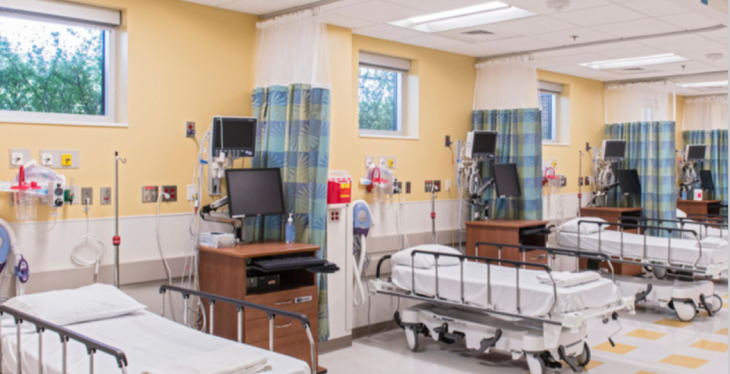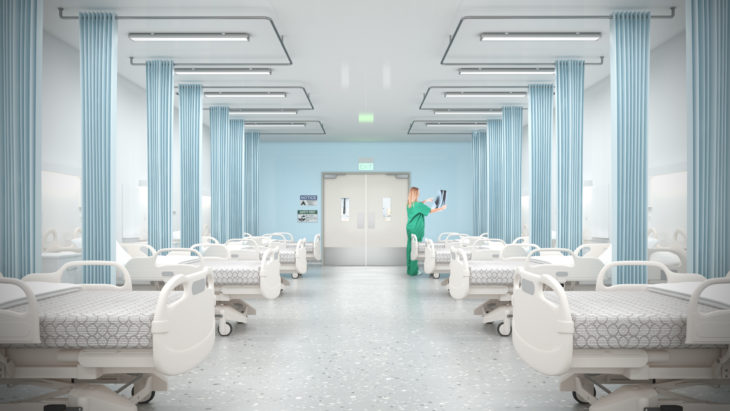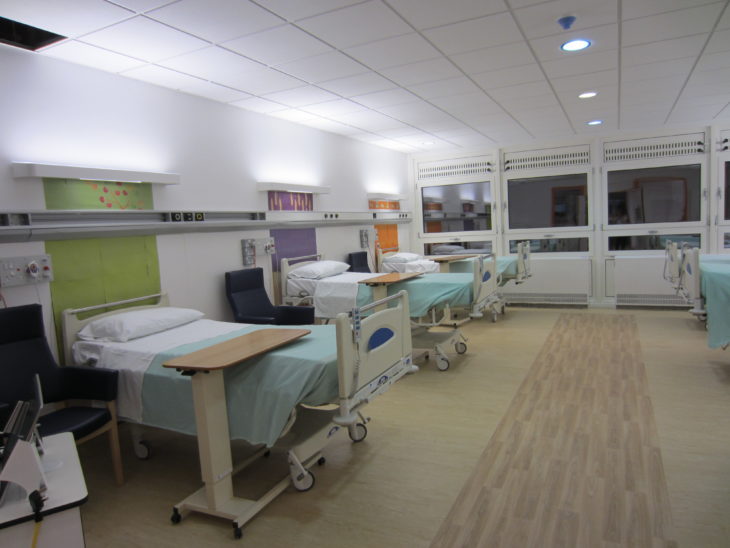Performance is affected by the light because of visual tasks, controlling the body’s circadian system, affecting mood and perception, and enabling crucial chemical reactions in the body. By controlling the internal clock, in healthcare it can help people in depression, decrease the length of stay in hospitals, improves circadian rhythm and sleep, lessens anxiety among patients, comforts pain, and improves adjustment to night shift workers among staff. The presence of windows in the workplace and access to bright lights has shown satisfaction increases in the workplace.

Source: Building Design + Construction
Why is light important in healthcare?
It is critical for human functioning because it allows you to see things clearly and perform all activities. But it also affects humans psychologically and physiologically. There have been several studies that document the importance of light and how it helps in reducing depression, improving alertness, modulating the body’s rhythm, and cure conditions among infants. Incorporating light into healthcare can be beneficial for patients as well as the staff working there.
Light in buildings is lit by a combination of daylight entering through the windows and skylights and other electric light sources. It is important to understand that two types of lighting have relative impacts on you and your performance. Sunlight gives off electromagnetic radiation in the wavelength that can be observed by photoreceptors in the eye. Sunlight provides a balanced spectrum of wavelengths that vary over the day. Artificial sources of light such as fluorescent lights are composed of wavelengths of light in the visible light spectrum which is concentrated. Full spectrum electric light sources such as lamps made of xenon have spectral wavelengths similar to daylight but they do not vary over time. Electric light has lesser benefits than natural one.
How light affects human health
The work environment for doctors and nurses in hospitals are very stressful. They are required to perform a range of tasks such as prescription and medication etc. If there is not enough light in the room, a chaotic environment burdened with the stress might lead to errors. Lighting may increase staff performance in hospitals.

Source: goodlight.co.uk
Light falling on the retina gets transmitted to the hypothalamus which controls the body’s circadian system. It synchronizes your internal clock with daylight. If the internal rhythms don’t match the workday rhythms, which is the case for many people in the night sector, People feel drowsy, tired and distracted. Or it could result in fatigue and complete inability to perform during their shift.
Studies have also found the time to exposure to artificial lights so it might help maintain rhythms and improve sleep. Soothing lights like those can be found at Andlight.se
How light helps you
There are also several reasons how it affects health and social care. It helps in reducing depression, reduces the length of time that patient stays in the hospital, improve sleep, lessons agitation, eases pain, improves adjustment to night shift workers and also affects our mood and perception.
People’s moods can be affected by different kinds of lighting conditions. A person’s comfort, preferences, expectations, and mood changes according to light. Working in the natural presence of light can give you better performance. Factors such as thermal discomfort and glare may affect your mood and task performance very negatively.
Direct absorption also helps you as they create critical chemical reactions in the body and supports vitamin D metabolism and prevents jaundice.

Source: hunterda.com
There is strong evidence that light is critical for human functioning and is beneficial to patients as well as the staff in healthcare. Adequate lighting conditions are essential for performance and an important goal for facility Designers should be to fulfill human needs for the same.
